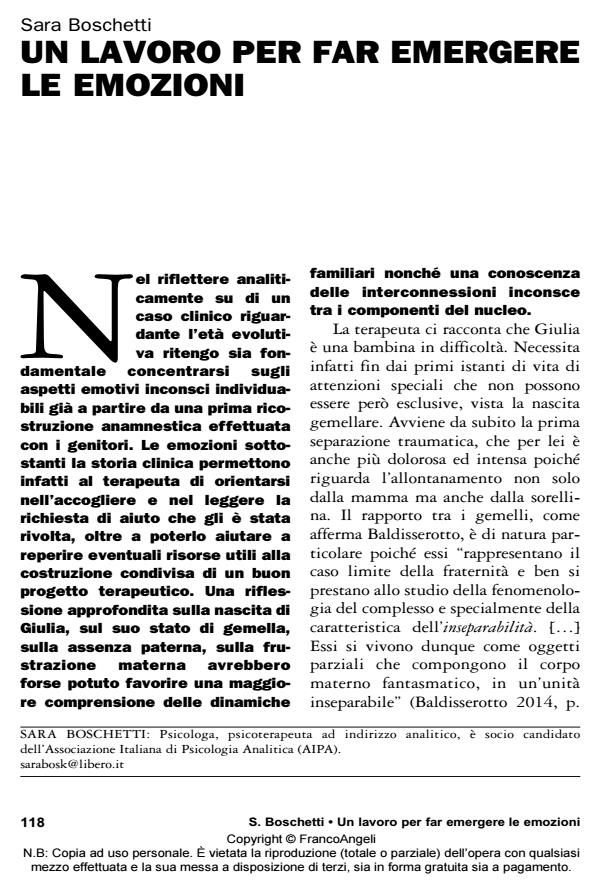A work to bring out emotions
Journal title PSICOBIETTIVO
Author/s Sara Boschetti
Publishing Year 2016 Issue 2015/3
Language Italian Pages 5 P. 118-122 File size 83 KB
DOI 10.3280/PSOB2015-003008
DOI is like a bar code for intellectual property: to have more infomation
click here
Below, you can see the article first page
If you want to buy this article in PDF format, you can do it, following the instructions to buy download credits

FrancoAngeli is member of Publishers International Linking Association, Inc (PILA), a not-for-profit association which run the CrossRef service enabling links to and from online scholarly content.
The author focuses on the importance of the detection by the developmental psychotherapist of unconscious emotional factors underlying the symptomatic manifestations of the child in therapy. The article highlights the problem of working with both parents during therapeutic path, for a better chance of understanding and care of the child problem. The author focuses on the difficulties of separation of Giulia, in relation to his personal history, and to the ambivalence of her mother in front of the possible release of the daughter. Along with this, it is underlined how the emotive tone, during both work and anamestic interview, can bring informations on how the family lives the disorder and its consequences. Furthermore the chance to work with both parents and child during therapy helps children with important anxiety disorders as Giulia to approach therapy with a greatest disponibility.
Keywords: Parents; Father; Emotions; Third; Separation; Twin Birth
Sara Boschetti, Un lavoro per far emergere le emozioni in "PSICOBIETTIVO" 3/2015, pp 118-122, DOI: 10.3280/PSOB2015-003008